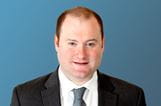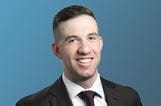Landmark U.S. Supreme Court ruling to support LGBTQ+ employment rights
Related people
Headlines in this article
Related news and insights
Publications: 30 November 2023
Publications: 08 September 2023
Street Child invests in the future as our charity partnership draws to a close
Publications: 14 December 2022
Publications: 08 December 2022
In June this year, the United States Supreme Court made a historic decision in support of the LGBTQ+ community, ruling that discrimination against workers based on their sexual orientation or transgender status violates federal law.

A&O’s Litigation practice supported the American Civil Liberties Union (ACLU) by filing an amicus brief and asking the Court to make clear that U.S. law prohibits such discrimination.
The landmark decision clarifies for the first time that LGBTQ+ people are protected from employment discrimination everywhere in the U.S. – including in states and cities that have no protection within their own laws. It is now illegal to fire or discriminate against any employee based on their LGBTQ+ status – a significant breakthrough in the defence and protection of equal rights for this community.
The decision resolved three specific cases in which LGBTQ+ individuals faced discrimination in the workplace – read more about the individuals involved here.
New York partner Andrew Rhys Davies led the A&O team that prepared the amicus brief in support of the ACLU’s action. “Upholding the rights of the LGBTQ+ community is not only a critical human rights issue, it’s the right interpretation of the law,” Andrew says.
We’re honoured to have been asked to support this important cause in front of the Supreme Court, and to argue for the protection of LGBTQ+ employees throughout the country so that the same principles are applicable in all workplaces.
Andrew Rhys Davies, New York partner
“We’re honoured to have been asked to support this important cause in front of the Supreme Court, and to argue for the protection of LGBTQ+ employees throughout the country so that the same principles are applicable in all workplaces.”
Alongside Andrew Rhys Davies, A&O’s team included associates Justin Ormand, Rebecca Delfiner, Gideon Duke-Cohan and Changhee Han (New York); and Melinda Bothe (Washington, D.C.).



